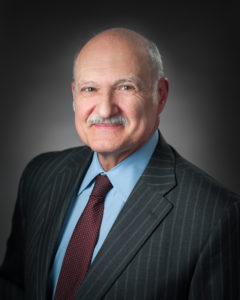Category: Firm Client Success Stories
Buttiglieri and Zawideh Successful in $4.2 Million Settlement Over Will Dispute
Kemp Klein Attorneys Joseph P. Buttiglieri and Robert S. Zawideh successfully represented the the plaintiffs in a case in which they were disinherited. This was a complex will contest involving a solitary man who died with no wife or children. The decedent never owned real estate, a car, a phone or a computer. He had no recent relationship with his two nieces, who were his only heirs.
When he died, his estate was worth approximately $21,000,000. Three years before he died, the decedent became a ward of the court. At the time, everyone, including decedent, believed he did not have a will. During the course of the guardianship and conservatorship, the decedent told a psychiatrist that he did not have or want a will and repeated this in two independent psychological exams. Before the wardship, he said as much to his financial advisors. Both psychologists reported that decedent had testamentary capacity. The conservator informed the court of his belief that there was no estate plan, and whoever was in charge would have to make sure the ward had one whether he wanted one or not.
The court appointed an attorney to assist the ward in preparing an estate plan. From 2018 to 2020, the court-appointed attorney drafted multiple wills, three of which were signed, all with varying dispositions of his property, and all of which expressly disinherited his heirs. One of the wills left two recently hired caregivers over $5 million each. The last will left his entire estate to several charities with which the decedent never had a relationship. After he died, the nieces objected to the probate of the last known, proffered will, arguing that he died intestate.
Thereafter, another charity came forward with a nonholographic unwitnessed document they claimed to be a will. Due to the numerous wills executed by the decedent, a significant concern was the issue of dependent relative revocation, which could have resulted in a separate jury trial over each individual will.
After hotly contested litigation, all the parties agreed to a 60/40 split of the estate, with the 40% group (who weren’t in the final will), arbitrating their claims to the balance of the 40%. After several days of arbitration, the 40% group asked the arbitrator to act as a mediator, at which point the case settled, with a substantial award for the disinherited nieces.
Nixon Wins Appeal in Favor of Charities
Case Summary: Upon his death, Raymond Rech’s trust gave three-quarters of his multi-million-dollar estate to three charities. The remaining quarter was held in trust to support his sister during her lifetime, after which the trust stated the remainder should be divided equally between the three charities. The sister’s grandchildren fought the distribution, claiming that a seemingly conflicting provision of the trust gave them the remainder, and the probate court agreed.
Resolution: Kemp Klein Appellate Attorney Ronald S. Nixon successfully represented the trustee in appealing the decision, winning over a million dollars back for the charities and defending Raymond Rech’s intent. The lesson learned from this case is that your estate planning documents need to be clear and not include unnecessary language that could be leveraged by those whom you do not want to receive your inheritance.
For further information regarding these matters, please contact Mr. Nixon at 248.619.2855 or via email.
Morrow successful in securing complete dismissal of lawsuit

Raymond L. Morrow was successful in securing a complete dismissal of a lawsuit brought in Oakland County Circuit Court against a client, who had previously been president of the company that sued him, after the client resigned and went into competition with his former employer. The lawsuit was for breach of fiduciary duty, misappropriation of trade secrets, conversion, interference with business relationships, defamation and conspiracy. The Plaintiff company sought more than one million dollars in damages, but as a result of the dismissal, recovered nothing.
Probate attorney Alan A. May has continued to develop methods to ensure that the intent of an Estate Plan is carried out without interruption.

Probate attorney Alan A. May has continued to develop methods to ensure that the intent of an Estate Plan is carried out without interruption.
Recently the Oakland County Probate Court entered an Order, during the lifetime of a client finding and determining that his Trust was valid and that he was competent and not subject to undue influence. The facts were simple. The client had 12 children and did not care for 10 of them. He favored two. We wrote a Trust and petitioned the court to declare it valid. We served the 12 children, not only with a copy of our petition, but with the Trust itself. Our theory was it is easy to speak about your parent after his death, but difficult to look him in the eye while he is still alive. The court agreed, and we got our Order.
Some people may prefer to keep their Estate Plan secret, and also to minimize conflict during their lifetime. These, of course, are valid considerations to weigh against the above approach.
Zawideh gets large collection case thrown out of court

Plaintiff, a national debt collection firm that buys and collects on defaulted loans across the country, filed suit against a client of Robert S. Zawideh seeking to recover an alleged outstanding debt in excess of $105,000 plus interest and costs. Instead of filing an answer, or conducting any discovery on the issue, Zawideh filed a motion for summary disposition (a motion to dismiss the lawsuit) based in part on the fact that the Plaintiff failed to attach to its complaint any proof that it bought the debt from the Defendant’s original lender. In response, Plaintiff attached to its answer to the motion a copy of the contract between the original lender and the Defendant. Plaintiff also attached a document it claimed to be an assignment. Comparing the document to a blank deed to real estate, Zawideh argued that the alleged assignment was fatally defective because it made no mention of the contract between the original lender and the Defendant. The Court agreed and granted Zawideh’s motion for summary disposition and dismissed the Complaint.
Buttiglieri and Feliksa Defeat Paper-Plate “Will” through Arbitration

Joseph P. Buttiglieri and Tracy L. Feliksa represented three brothers contesting the validity of a note written on a paper plate, which was purported to be their father’s last will and testament. The paper plate was kept in the daughter’s home and shown to her brothers only after her father’s death. The daughter would be the only one of the four children to benefit if the paper plate was determined to be the man’s will and was admitted to probate. The paper plate contained cryptic words that, if read as the daughter argued, would have required that the man’s liquid assets be used to pay-off the loans on his house and that the house be given to his daughter. It would have resulted in an effective disinheritance of his three sons.
Words written on a paper plate might serve as a valid Will under Michigan law, under one of three scenarios: (1) it is witnessed by at least two individuals and is signed by the testator, (2) it is a “holographic will” in which the material provisions are in the testator’s handwriting and it is signed and dated by the testator; or (3) it is shown by clear and convincing evidence that the decedent intended the document to be his Will. In this case, the paper plate was not witnessed and did not contain the full signature of the decedent- only his initials. The daughter argued that the paper plate still met Michigan’s holographic statute and that the father intended for the paper plate to be his Will.
Buttiglieri and Feliksa argued against admission of the paper-plate on the basis that (1) the initials did not meet the requirements of Michigan’s holographic statute; (2) that the paper plate was the product of undue influence by the daughter, on whom the decedent had come to depend after his beloved wife’s death; and (3) that even if the plate was determined to be a testamentary document, the words on the plate did not make a devise of the decedent’s home to his daughter but rather were a list of directions for her to follow upon his death. Buttiglieri and Feliksa defeated a motion for summary disposition, and the parties proceeded to a two-day arbitration hearing.
The evidence presented was used to try to establish a presumption of undue influence by the daughter over the father- that he acted against his natural inclinations when writing the paper plate. Buttiglieri and Feliksa were able to demonstrate that although the father had a good relationship with each of his children, he became dependent on his daughter. Testimony from family, text messages, and old financial documents were used to illustrate the father’s severe depression after the death of his wife, his increasing social isolation and dependence on his daughter, and his fear of doing anything without her approval.
Buttiglieri and Feliksa also argued that the words on the paper plate lacked clarity of intention and could be interpreted as a list of instructions to the daughter, rather than a devise of the father’s house. They were able to discredit the daughter’s two surprise witnesses who testified that the father intended to leave his house to his daughter. One was a cousin who coincidentally also had been the beneficiary of a “surprise” deed, produced after death, devising a house from her grandmother. The other was a neighbor, who when cross-examined, changed his testimony. Opposing testimony was provided to support the sons’ position that the decedent and his late wife had always wanted their estate divided equally between the four children.
The arbitrator concluded that the evidence provided by the daughter was not convincing enough to show that the paper plate stood as a clear and accurate depiction of the decedent’s intent. Additionally, no evidence was provided to show that the decedent intended the initials to be his signature. The arbitrator agreed that the words on the plate were ambiguous, and did not clearly indicate that the decedent wanted his daughter to have his house after death. The paper plate was not admitted to probate, and the sons were able to share equally in their father’s estate.
Zawideh and Bisio Reinstate Guardianship and Conservatorship Petitions

Robert Zawideh and Richard Bisio were retained by a brother and sister whose petitions for guardianship and conservatorship over their elderly mother were denied by the probate court. Previously, the brother and sister, who were two of ten adult children, were represented by an attorney who did not notify them until nine days before trial that he had a scheduling conflict that prevented him from representing them at trial, and that they needed to find replacement counsel. Despite their best efforts, the clients were unable to obtain substitute counsel in such a short time. As a result, the day before the trial was to begin, the former lawyer filed a motion for withdrawal that was immediately granted (the order of withdrawal was time-stamped at 9:00 a.m. that same day).
Without trial counsel, subpoenaed witnesses, or exhibits, the brother and sister had no chance against their opponent, a seasoned, highly regarded probate trial attorney. After the court dismissed their petitions, Bisio and Zawideh defeated counsel’s efforts to have the probate court impose a $70,000.00 sanction against their client. Then, Zawideh and Bisio succeeded in convincing the Court of Appeals to vacate the orders dismissing those petitions, and to give their clients their day in court.
Zawideh Successfully Defends Son’s $2.1 Million Inheritance
Robert Zawideh’s client was the youngest child of four children (three sons and a daughter), whose father passed away in the summer of 2013. Long before his passing, the father provided seed money to the three older children to start a real estate development company that became extremely lucrative for them. Mr. Zawideh’s client did not share in that success, however, and his father decided to make up for that, years before his passing, by making his youngest son a joint owner on four bank accounts totaling approximately $2.1 million dollars.
The three sons were also equal shareholders in a trucking company. During his lifetime, the father, through his trust, extended loans to the company which was evidenced by a secured promissory note, a note for which he refused payments. One month before his death, the father amended his trust in two ways. First, he confirmed his intention that four bank accounts were jointly owned with his youngest son, and that he was to be treated as a surviving owner of the four accounts on the father’s death. Second, he wanted his wife to be able to demand payments on the secured promissory notes during her lifetime, should she survive him, and on her passing, the note would be forgiven.
After the father’s passing, the daughter, using a Durable Power of Attorney filed suit on behalf of her mother against Mr. Zawideh’s client, another son, and their company, seeking recovery of over $4.85 million. Specifically, the daughter claimed that the promissory note was worth $2.45 million and sought to accelerate the entire indebtedness. She also alleged that Mr. Zawideh’s client was required to turn over to the estate $1.5 million remaining in the joint accounts another $600,000 spent from the accounts loan that wrongly described as a “loan”. The daughter also claimed that another brother was required to repay $300,000 as on another loan.
After the daughter filed suit, Mr. Zawideh’s client and his company went to court to require the daughter to accept $14,000 a month, which would be used to pay for their mother’s needs, which the Company timely paid every month for the rest of the mother’s life.
Following hotly contested litigation in the circuit court, probate court and Court of Appeals, and on the eve of trial, the parties reached a settlement, the ultimate cash payment amounted to approximately $0.15 on the dollar relative to the original claims asserted by the daughter. Specifically, while the settlement agreement provides for a settlement amount of $1,800,000.00, the express language only required Capacity to actually write a check to the Mother’s Trust (of which the four adult children were 25 percent beneficiaries) for $750,000. The remaining $1.05 million was given to Mom’s Trust in the form of a promissory note, which in turn divided that note into three equal promissory notes of $350,000, each of which was assigned back to the Company’s shareholders, the three sons.
Ultimately Mr. Zawideh’s client never had to repay (1) any of the money given to him by his father in the joint accounts, nor (2) the alleged $600,000 loan. Further, his company (1) reduced its liability on the promissory note, (2) provided for his mother’s needs for the rest of her life, and (3) avoided having to be liable for any tax on the forgiveness of the indebtedness had the note actually been terminated on Eva’s passing pursuant to the trust amendment.
Robert Zawideh Obtains Award Granting his Client Her Rightful Inheritance from Her Father’s Trust

The father of Robert Zawideh’s client died in 2015, leaving a substantial estate and trust. The Trust provided that Mr. Zawideh’s client was entitled to 1/3 of the value of two securities accounts owned by the client – identified by account numbers in the Trust – provided they existed on the date of his death. On the date of the father’s death, the accounts existed, however, the account numbers changed between the time the Trust was written, and the date of the father’s death. The client’s prior counsel wrote to the Trustees, decedent’s brothers and uncles to Mr. Zawideh’s client, requesting information on the client’s share of her father’s trust. Receiving no response, the attorney referred the client to Mr. Zawideh who commenced proceedings for accountings and immediate distribution of his client’s share. The Trustees responded, arguing for the first time that the accounts no longer existed by virtue of the change in account numbers. The Court disagreed and sided with Mr. Zawideh, ruling that his client was entitled to her inheritance, which was in excess of $1,000,000.00.
Robert Zawideh Convinces Bank to Set Aside $540,000 Judgment in Exchange for Pennies on the Dollar

Like so many other real estate investors, Attorney Zawideh’s client suffered substantial losses when the real estate market collapsed in 2008. The Client invested approximately $600,000 in vacant Florida real estate, and financed that property with the Plaintiff Bank. When the market collapsed, the bank filed for judicial foreclosure in Florida, and also sought a deficiency judgment for the difference between the value of the property and the remaining debt on the loan. The bank submitted an appraisal claiming that the same property they appraised for approximately $500,000.00 was now worth less than $100,000.00. Receiving no response from the client, in 2013, the bank obtained a default judgment against Mr. Zawideh’s client of approximately $540,000.00.
In 2016, the bank sought to domesticate the judgment in Michigan in order to begin collection proceedings. Once Mr. Zawideh was retained, he researched the Florida court filings and found that the process server who claimed to have served Mr. Zawideh’s client filed another Proof of Service attesting that he served another defendant in the case at another location on the same date at exactly the same time. Still, the bank stubbornly refused to set aside the judgment until after the deposition of the process server revealed that his assertions were completely indefensible. Thereafter, the bank agreed to set aside the Florida Judgment and dismiss all the proceedings in exchange for $10,000.00 paid over time.






